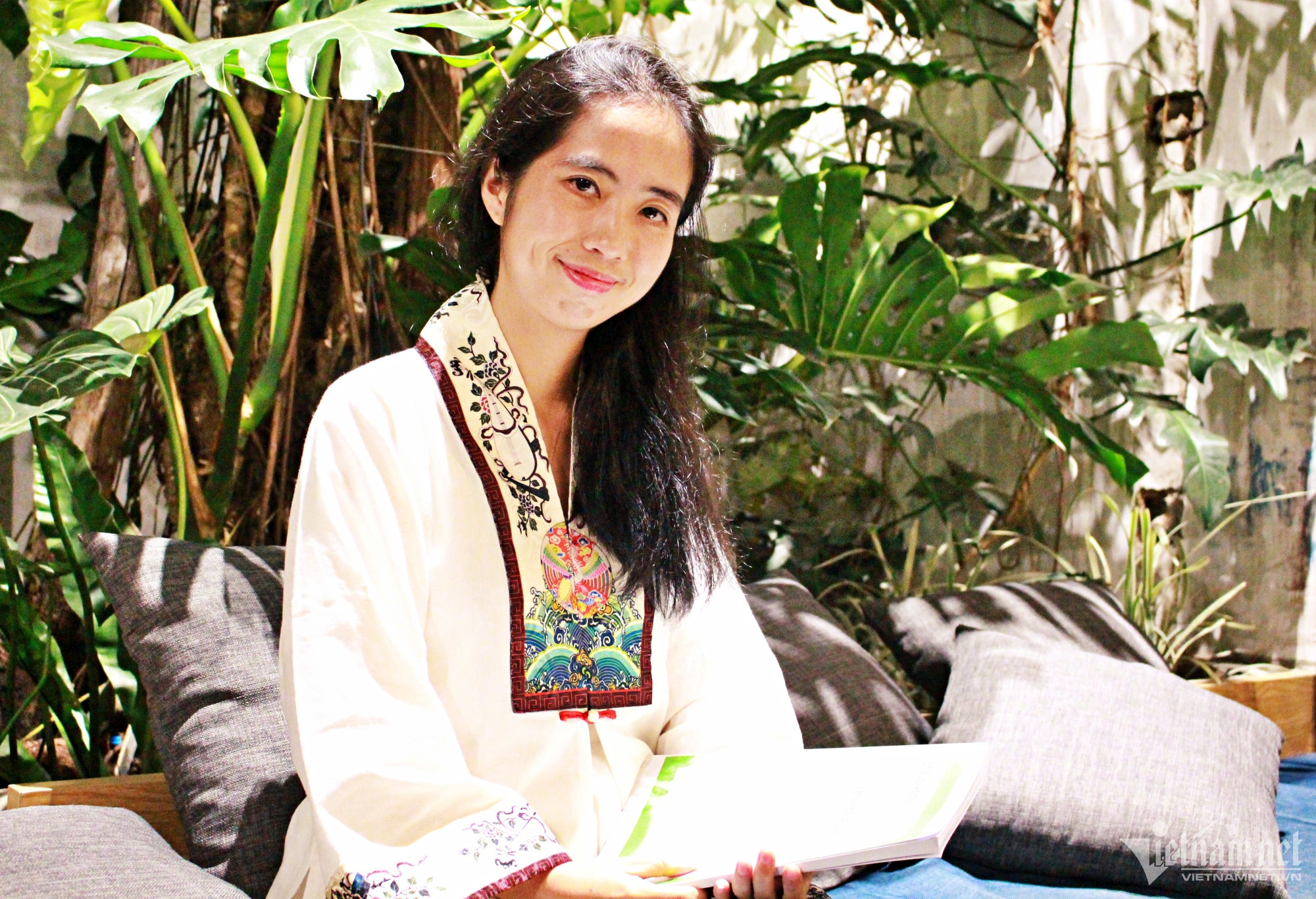
Wishing to preserve and disseminate the Vietnamese language to Vietnamese people born and raised abroad and to foreigners who love Vietnamese, many teachers, volunteers, and overseas Vietnamese are teaching Vietnamese in foreign countries.
Ton Nu Tuong Vy, born 1990 in HCM City, the royal grandchild of King Minh Mang, is one of them. She came to the US with the mission of teaching Vietnamese at the University of North Carolina – Chapel Hill (UNC) in 2021-2022.
This course resumed after 15 years of interruption.
Many years ago, UNC had a program on teaching Vietnamese run by a professor who initially was a teacher of Chinese. But when he studied Vietnamese later and lived in Vietnam for a period, he came up with the idea of teaching Vietnamese to Americans so that they can better understand the country and its people.
The professor began teaching Vietnamese at UNC. The teaching program lasted until he retired. Because of his retirement, UNC had to interrupt the Vietnamese language program for a long period, though surveys showed students’ high demand for learning Vietnamese.
By that time, the first generation of offspring of Vietnamese who had left the country for the US in 1975 had entered college age. The generation had a great demand for learning Vietnamese because they wanted to better understand their origins.
According to the North Carolina Asia Center, Vietnamese is the sixth most common spoken language among families in North Carolina. As UNC could not find a suitable teacher of Vietnamese at that moment, it cooperated with SOAS University of London to organize online classes.
As the number of people registering to learn Vietnamese increased rapidly, UNC decided to employ teachers of Vietnamese at the school. Vy, who has been to 38 countries and territories, became a teacher of Vietnamese.
The students in Vy’s classes ranged from freshmen to PhD candidates, and most of them were Vietnamese Americans. The remaining were others who came had a great love for the Vietnamese language.
Some students said they studied Vietnamese because it was a ‘bridge’, or ‘window’ through which they could look back at their past and answer why they were there.
Pride
Meanwhile, many students learned Vietnamese because they had relations with Vietnamese, or had been to Vietnam. They wanted to come to Vietnam and studied the language to learn more about the country.
One of Vy’s students was a girl whose grandmother was Vietnamese.
The girl only knew the word ‘ba noi’ (grandmother). After her grandmother passed away, she decided to learn Vietnamese.
Tuong Vy started from scratch. Without any available materials or instructors, she had to find her own sources of books and documents to prepare the curriculum. Vy also learned from many other lecturers in Vietnam and the US.
Vy asked students to implement projects in Vietnamese language based on the topics they chose themselves. Her students also attended extracurricular activities, watched Vietnamese movies. They sang Vietnamese songs, and organized games and activities with the themes about Vietnamese Tet and other issues.
After school hours, Vy and her students communicated through diaries. Students submitted diaries to her every Friday and Vy replied.
Finishing the Vietnamese teaching program, Vy returned to Vietnam. In HCM City, she continues to teach Vietnamese to foreign students who come to Vietnam to study under the international exchange program initiated by the School for International Training organization.
She also keeps in contact with some of her former UNC’s students. “What makes me feel proud is that my students, who are very young, told me that they will teach Vietnamese to their children and grandchildren,” she said.
Ha Nguyen